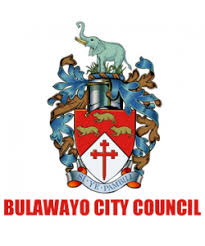By Albert Nxumalo
Bulawayo City Council (BCC) has disclosed that it has recorded 47 diarrhoea cases in Old Luveve due to poor water quality and residents drinking water from unprotected wells, CITE has learnt.
In recent days, residents in the suburb have been up in arms with the local authority over the alleged poor quality water coming out of the taps.
Deaths have been recorded, however, a latest council report from the Director of Engineering Services on water contamination in Old Luveve seen by CITE is silent on deaths.
There are about five deaths so far in the city and a post-mortem report for a 16-year-old boy from Luveve who died after reportedly drinking contaminated tap water reveal that he succumbed to Acute Gastroenteritis due to Typhoid.
Based on the council report, women are the most affected.
“A total of 47 diarrhoea cases have been identified, so far (53% females; 47% males) with median age 36 years range observed that most of the cases are clustered in Old Luveve where open dug wells are most prevalent,” reads the report.
According to the council, after receiving reports on water contamination, investigations were carried out on the 4th of June 2020 and the water system was attended to.
“Following numerous reports of water contamination in Old Luveve through the call centre, immediately the system was exempted and flushed.
“However, during the same time, there were repairs being carried out in Nyamandlovu aquifer by ZINWA, which affected water supplies to the Magwegwe Reservoir.
“So, although the area was exempted, due to low water levels in Magwegwe reservoir, the initial samples by Health Services had to be taken from the household buckets.
“Thereafter the Water quality and Water distribution sections in the Engineering Services Department had to carry out further investigations.”
Council says information gathered from residents and data from the call centre indicated that the affected area in Old Luveve had recurrent sewer blockages, service connection leaks, hand-dug wells along outfall sewer pipes along the stream and several water pipe-bursts which were repaired.
The report says before water shedding which has been progressively increased from 48-hours in February of 2019, to the 120-hours regime in April 2020, “the water quality in Old Luveve and other surrounding areas has been within acceptable quality standards.
“However, the dwindling dam levels left Council with no choice but to adopt the most severe shedding regime of supplying water only once per week”.
Council adds that the infrastructure is over 50 years old and has not had any water quality challenges.
“The 144-hour shedding strained the already aged network, further complicating the system and reducing its ability to self-cleanse due to prolonged hours of no water in the network” reads the report.
However, the local authority partially blames residents for ‘unsafe water’ due to vandalising the infrastructure.
“In 2018, a Contractor was hired to dredge and winch the Luveve outfall sewer and the sewer drainage system in Luveve. However, due to the current prolonged drought, residents in the area, in order to maintain their livelihoods, resorted to vandalizing the outfall sewers so as to irrigate their community gardens.
” This has resulted in the proliferation of hand-dug wells in the vicinity of Old-Luveve outfall sewer. It is probable that residents could be drawing water from these unprotected open-wells, which could be another source of contamination.
“There is a high possibility that there is lack of disinfection of the containers after they will have been used to draw contaminated water from open-wells when they get to be used to store drinking water drawn from Council mains”.
As part of recommendations, the council says Government should release funding to complete the outstanding Epping Forest project in Nyamandlovu aquifer to get an additional 10 ML/Day at a cost of USD 1.5 Million.
“Improvement of raw water output from Mtshabezi dam to get an additional 8 ML/Day at a cost of USD 21 Million.
“Consider the option of recycling Khami Dam water to potable standard and secure 15 ML/Day at a cost of USD 28 Million”.

